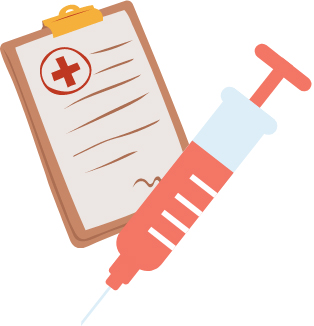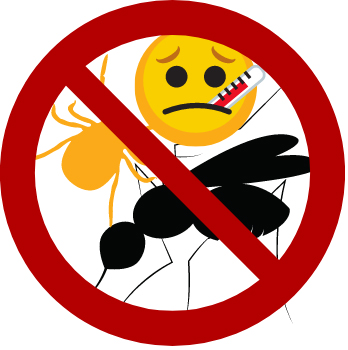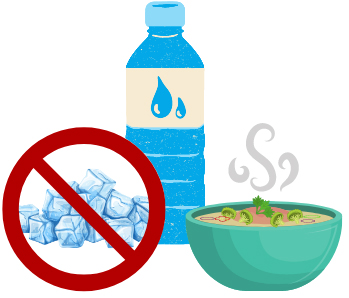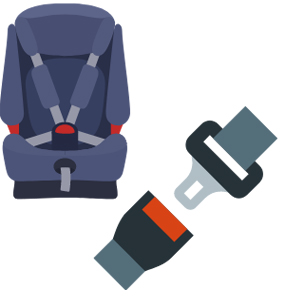
Stay healthy while traveling.
Do you know what precautions to take to stay healthy while traveling? Below are tips to help keep you and your loved ones healthy!
 Tip 1
Tip 1
Get vaccinated.
Vaccinations can help protect you from infectious diseases transmitted across the world. Stay up to date with your routine vaccines as well as all travel vaccines recommended for your destination.
Learn how GNR Public Health can help you with travel immunizations.
- Ensure you and your loved ones are up to date on vaccinations.
- Find out which vaccines you may need to stay safest while at your destination.
Find a health center near you and make an appointment.
 Tip 2
Tip 2
Prevent bug bites.
Mosquitoes, ticks, fleas, and some flies can spread diseases such as malaria, yellow fever, Zika, dengue, chikungunya, and Lyme disease, all of which can have severe consequences.
- Use EPA-registered insect repellents with one of the following active ingredients: DEET, picaridin, IR3535, oil of lemon eucalyptus (OLE), para-menthane-diol (PMD), or 2-undecanoate. Permethrin can be used to treat clothing and other gear.
- Use barriers, such as long sleeves/pants, screens on doors and windows, and mosquito netting.
Learn more ways to avoid bug bites.
Read more about insect repellent use at The Centers for Disease Control and Prevention (CDC).
 Tip 3
Tip 3
Eat and drink safely.
Traveler’s diarrhea is the most common travel-related illness and it can result in severe illness.
Help reduce your risk of developing food-related illness:
- Only eat food that has been fully cooked and served hot.
- Avoid fresh vegetables or fruits unless you can thoroughly wash or peel them yourself.
- Only drink bottled, sealed beverages, and avoid ice—it could contain contaminated water!
- Be careful with seafood, as it may contain toxins that can cause food poisoning.
Learn more about food and water safety while traveling.
 Tip 4
Tip 4
Stay safe on the road.
Accidents involving motor vehicles are the number one cause of preventable deaths of Americans traveling abroad.
- Always wear a seat belt or helmet, and put children in an appropriate car seat.
- Ask your hotel to refer a trustworthy driver or taxi company.
- Never drink and drive or ride with a driver who has been drinking!
- Avoid riding on overloaded buses and traveling at night or alone.
Read more about staying safe while traveling when at your destination.
 Tip 5
Tip 5
Register for the U.S. State Department’s Smart Traveler Enrollment Program (STEP).
This free service provides travelers from the United States with important safety information about their destination and helps the U.S. Embassy contact you in an emergency, whether natural disaster, civil unrest, or family emergency.
Get more travel information!
Centers for Disease Control (CDC) Traveler Information Center
Smart Traveler Enrollment Program (STEP)
Free service that provides travelers from the United States with important safety information about their destination and helps the U.S. Embassy contact you in an emergency.
Malaria Disease
According to CDC, millions of US residents travel each year to countries where malaria is present. About 2,000 cases of malaria are diagnosed in the United States annually, mostly in returned travelers.
Sub-Saharan Africa has the greatest risk to travelers of both getting malaria and dying from an infection. However, all travelers to countries where malaria is present may be at risk for infection.
Read more about malaria including transmission, prevention, symptoms, and treatment at CDC.
Anti-malarial fact sheets from CDC:
Malarone (atovaquone-proguanil)
Downloads
Download a printable flyer to share with friends. English Spanish
Find a health center near you.


